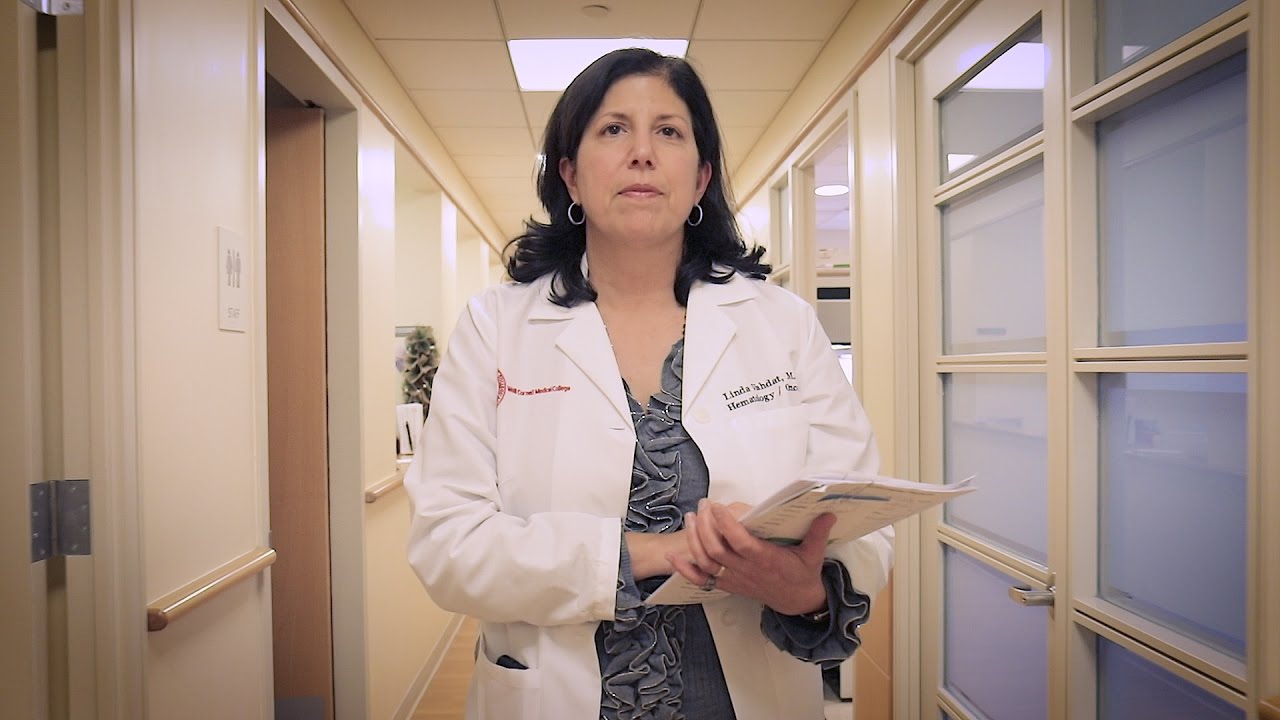We’re not afraid to say, “We want to cure people.” –Dr. Linda Vahdat
By A. Clara Pistek
Dr. Linda Vahdat is a Professor of Medicine and Director of the Breast Cancer Research Program at Weill Cornell Medicine in New York City. In 2014, she founded the Triple Negative Breast Cancer Clinic, one of only two clinics dedicated to triple negative breast cancer in the U.S. Dr. Vahdat and her team have specifically focused on treatment of women with this form of the disease. It has high-rates of recurrence and treatment options are limited to surgery and standard chemotherapy. Hormonal therapy has not proven effective.
Committed to Making a Difference
As a dedicated physician and researcher, Dr. Vahdat says she has always been drawn to patients who face the most challenges. After completing medical school, she began her career concentrating on high-dose chemotherapy and stem cell support for people with metastatic forms of breast cancer, who were at high risk of relapse. However, according to Dr. Vahdat, “We would get people into remission, but we couldn’t keep them there. That’s what made me start looking for something that would keep them in remission.”
She knew that she wanted to make even more of a difference. What she did not know was that it would come by using an innovative strategy that targets the tumor microenvironment, and not the tumor itself.
Seeing the Big Picture
Researchers have always been puzzled as to why patients can relapse with cancer after many years of being cancer-free. Numerous studies have shown that cancer cells lay dormant, waiting for a signal to trigger growth. One part of the signal is the ability of the dormant cells to recruit blood vessels in order to use the blood flow to further their own growth. Another factor that plays a role in triggering the signal is the environment in other organs in the body. A tumorfriendly microenvironment in distant organs facilitates the travel and arrival of tumor cells. They then settle and begin to spread.
Copper, a metallic element essential to human health, is used in normal cell functions. Yet it has also been found to play a role in cancer development in the human body. Copper can encourage the growth of the blood vessels that feed dormant, and later active, cancer cells. It is necessary in the activation of an enzyme that allows cancer cells to move independently in the body. Recent studies have indicated that this element is also needed by certain cancer molecules for signaling, or communicating with and influencing their environment. And, copper is required to build a scaffolding made of collagen that cancer cells populate as they begin a growth cycle.
Early studies and trials have shown that copper depletion in the body is not effective against primary tumors. However, reducing copper has had promising results in patients who are in remission. The growth factors needed by dormant cancer cells to be activated appear to be disrupted by lowering the amount of copper in the body.
A New Path Forward
Aware of these copper connections, Dr. Vahdat and her team initiated a clinical study in 2007 on the effects of copper depletion, specifically in the tumor microenvironment, in seventyfive patients who were at high risk of recurrence. Patients were given a drug that lowered copper levels in the body by about half, with minimal side effects. In a follow-up study five years later, sixty-two of those patients had no detectable cancer. Through the creation of a biologically hostile microenvironment, the cancer cells were rendered dormant. The results of their research point at a completely new and exciting way of treating cancer.
The research is still in its early stages and more work must be done to bring this promising treatment to women who need it. The Laurus Project is proud to partner with Dr. Vahdat and the Weill Cornell Cancer Research team by providing a grant to fund this muchneeded research.
More about Dr. Linda Vahdat
Linda T. Vahdat, MD, MBA, is a Professor of Medicine at Weill Cornell Medical College as well as an Attending Physician at New York-Presbyterian Hospital in New York City. She is currently the Director of the Breast Cancer Research Program at Weill Cornell Medicine and Co-Leader of the Breast Cancer Program within the Meyer Cancer Center.
Dr. Vahdat earned her undergraduate degree at Barnard College/Columbia University in New York City and completed her medical degree at Mount Sinai School of Medicine. She remained at Mount Sinai for her residency training in Internal Medicine and completed fellowship training in Medical Oncology and Hematology at the Memorial Sloan-Kettering Cancer Center (MSKCC). In 2014, Dr. Vahdat completed a master’s degree in business administration (MBA) at the Sloan School of Management at the Massachusetts Institute of Technology.
Dr. Vahdat has published over 100 articles in peer-reviewed journals and several textbook chapters including one on targeted therapy for breast cancer. Her research interests include breast cancer, metastasis biology, new drugs, and new technology.

